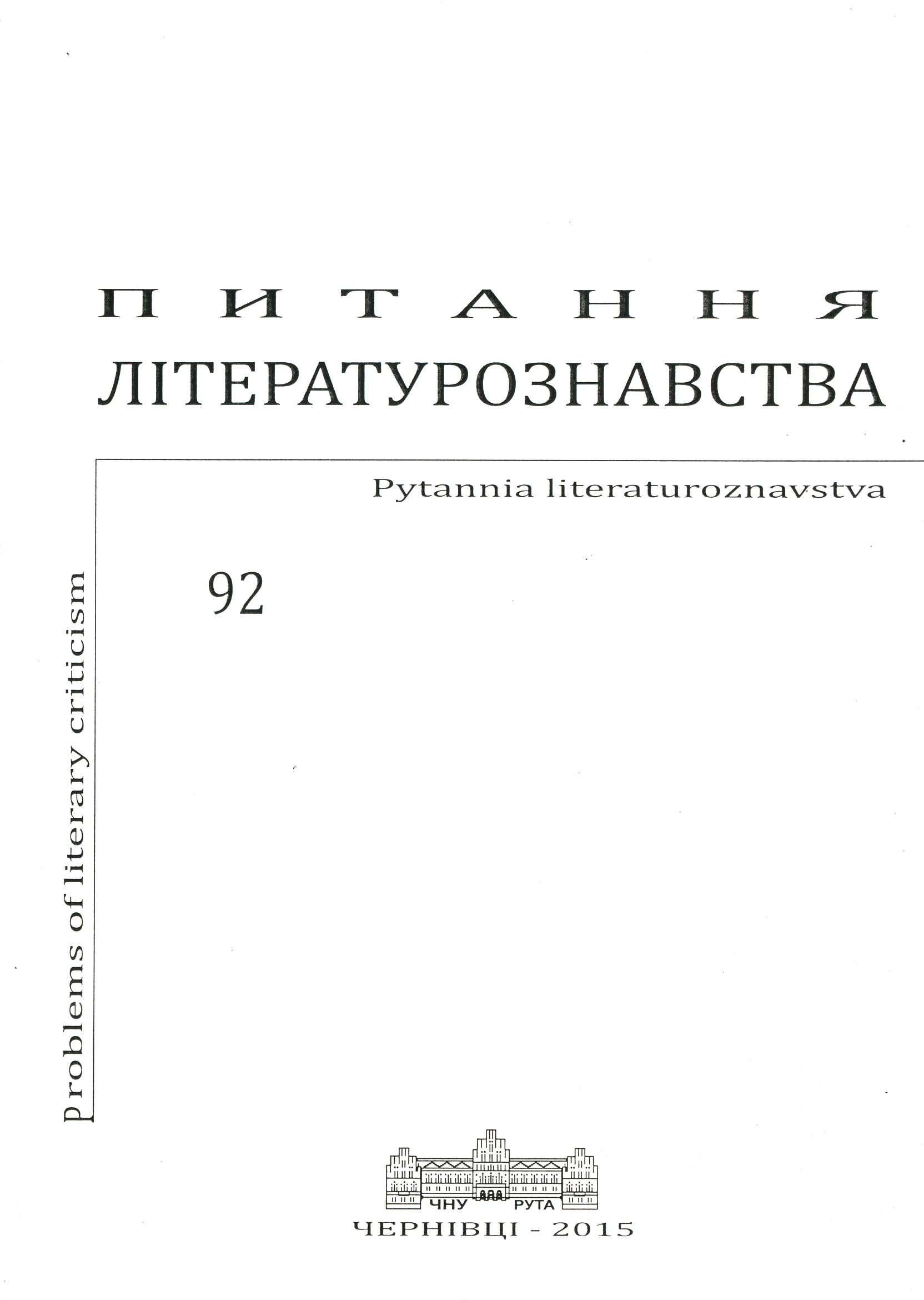Професор О. В. Кеба як дослідник творчості Андрія Платонова
Professor A. Keba as the Scholar of Andrei Platonov’s Writing
Author(s): Kostiantyn TytianinSubject(s): Language and Literature Studies, Studies of Literature, Russian Literature, Theory of Literature
Published by: Чернівецький національний університет імені Юрія Федьковича
Keywords: Andrei Platonov; Alexander Keba; typology (Literature);
Summary/Abstract: The monograph of Alexander Keba is the first attempt to provide the comparative analysis of Andrei Platonov’s works and typologically similar phenomena of world literature in the twentieth century. O. Keba considers the comparison of J. Joyce’s and F. Kafka’s writings is the most representative. Comparing Platonov and Joyce, Keba concludes that the poetics of both writers are based on their anthropology. Hence, there is the main features community of their art systems. But the ways of the character’s consciousness rendering are different in these writers: Joyce relies on the “consciousness stream”, Platonov reclines the abnormal, but etymologically precise, “semantic” language. Typological common in Platonov and Kafka is their problem significance perception of human existence meaning. Both writers are successful in creating of artistic worlds-myths. But because of proximity to the vernacular mythology in Platonov's writings there are the restoring harmony prerequisites and in Kafka's writings the tone of tragic alienation is dominant. O. Keba also tries to describe the broad context of Platonov's works and therefore takes into account: 1) purely philosophical (philosophical and aesthetic) context of Russian writer’s works (we are talking about the parallelism of Platonov’s ideas and negotiators of the “life philosophy”, about the Platonov's attention to the ideas of Oswald Spengler about the “organic nature of life”, to the Henri Bergson’s intuitivism and F. Nіtsshe’s reflection of superhuman, about the comparison of Platonov's ideology with the philosophy of existentialism); 2) the context of genre searching in the literature of the twentieth century (the genre of utopia and anti-utopia in the structure of Platonov’s, Hermann Hesse’s and Karel Chapek’s) works, ambiguous usage of parable elements in Platonov's and William Golding’s works, as well as in the works of Ukrainian writer Mykola Khvyliovyi.
Journal: Питання літературознавства
- Issue Year: 2015
- Issue No: 92
- Page Range: 191-197
- Page Count: 7
- Language: Ukrainian

